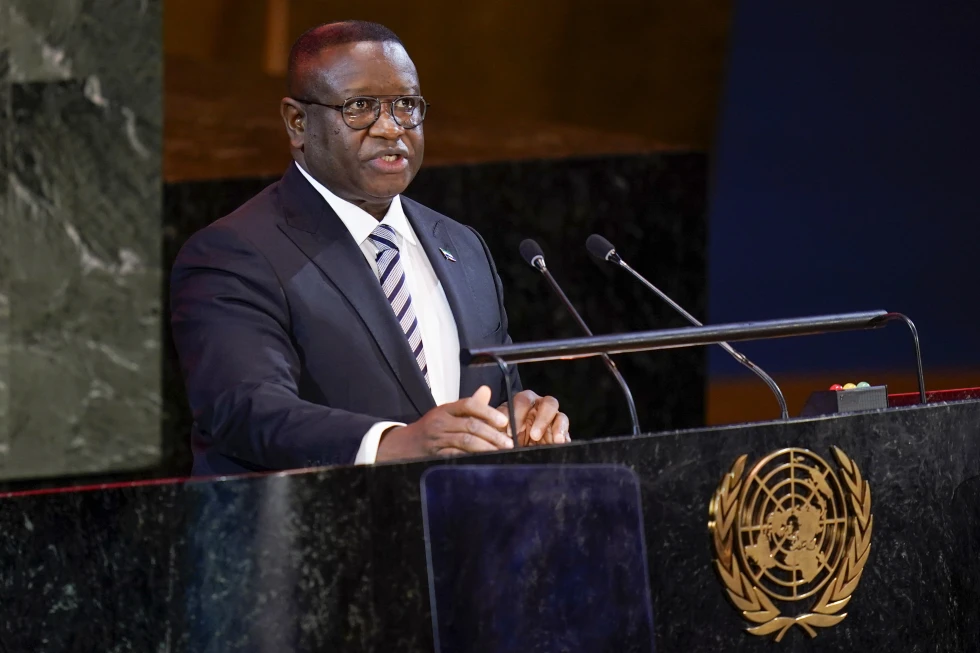In a significant push for reform of the United Nations Security Council, both UN Secretary-General António Guterres and Sierra Leone’s President Julius Maada Bio have strongly advocated for permanent African representation on the council.

Their calls, made on Monday, August 12, 2024, highlight the growing urgency for change in the structure of the UN’s most powerful body.
President Bio, chairing a Security Council meeting during Sierra Leone’s rotating presidency, emphasized that “Africa cannot wait any longer” for fair representation.
He described the continent as the “unquestionable victim” of an outdated and unbalanced council structure, stating, “The time for half-measures and incremental progress is over. Africa must be heard, and its demands for justice and equity must be met.”
Echoing these sentiments, Secretary-General Guterres pointed out the glaring disparity in representation, saying, “We cannot accept that the world’s preeminent peace and security body lacks a permanent voice for a continent of well over a billion people – a young and rapidly growing population – making up 28% of the membership of the United Nations.”
The current composition of the Security Council, with five permanent veto-wielding members (United States, Russia, China, Britain, and France) and ten non-permanent members, reflects the global power structure that emerged after World War II.
This arrangement has long been criticized for failing to represent the realities of the 21st century, particularly the emergence of Africa as a significant global player.

The African Union has proposed adding two permanent seats and two additional non-permanent seats for African countries.
This would bring the total African representation to five seats, better reflecting the continent’s population, UN membership, and contribution to peacekeeping efforts.
Guterres highlighted that nearly half of all UN peacekeeping operations are in Africa, with 40% of UN peacekeepers being African.
He also noted that while Africa is under-represented in international decision-making bodies, it is “over-represented in the very challenges these structures are designed to address.”
The push for reform comes ahead of the UN “Summit of the Future” and the annual General Assembly gathering next month.
There are hopes that these high-level meetings could generate momentum for change, with the latest draft of the summit’s “Pact for the Future” terming Security Council reform a priority.
However, the path to reform remains complex. While there’s general agreement that the council needs to change, discussions have stalled over specifics such as the extent of expansion, which countries to include, and what powers new members should have.
As the debate continues, both Guterres and Bio emphasize that reform is not just about ethics and justice, but also a strategic imperative.
“It is also a strategic imperative that can increase global acceptance of the council’s decisions – benefitting Africa and the world,” Guterres stated.
The coming months will be crucial in determining whether this renewed push for African representation on the Security Council can overcome longstanding obstacles and lead to meaningful reform of this key global institution.
Source: bbc.com



